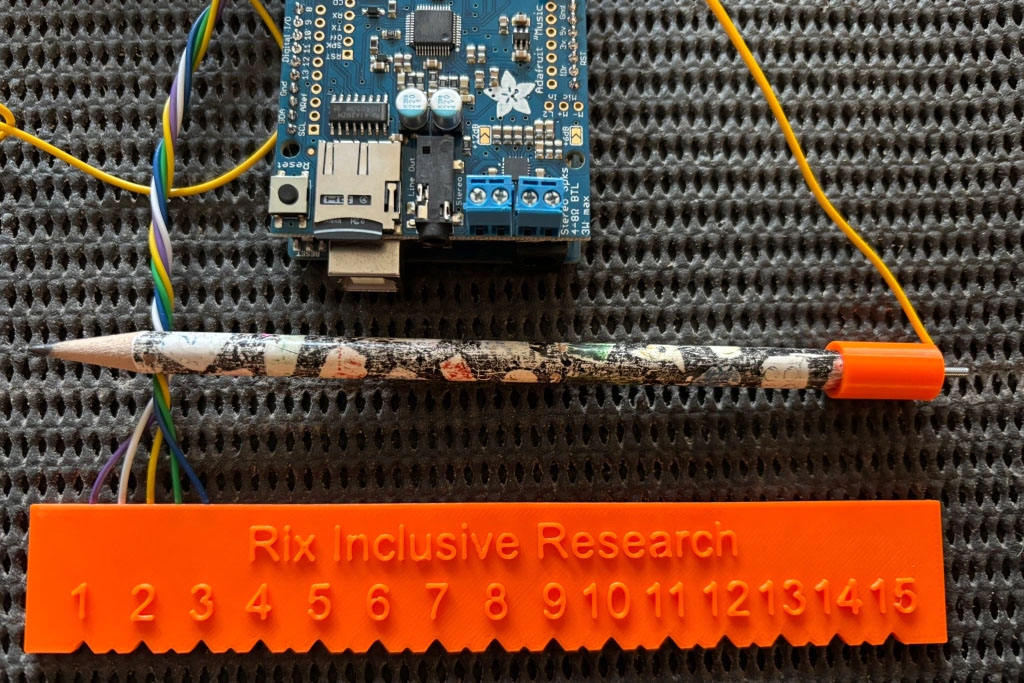Coming into RIX, I was expecting a more clinical setting for those with profound and multiple learning disabilities. I knew that RIX worked extensively with individuals who have multiple learning disabilities, but I did not realise just how collaborative the environment would be.
RIX also have a lot of partnerships and communications with other organisations and are always working on something to come. Despite much of their work being socially driven, I found that my engineering background was still highly applicable, and I was given meaningful opportunities to contribute my expertise. The entire team welcomed me warmly, creating an environment where I felt valued and supported.
During my internship I did a lot of work alongside Nic Hollinworth on two main projects, the RoboRamp and the Talking Ruler.
The RoboRamp is a self-guided autonomous ramp to help those in wheelchairs easily overcome the gap that exists between the train and the platform within the London Underground system without having to call 24 hours in advance.
My role in this project involved creating 3D models to represent the proof of concept which were then sent to developers for further funding and manufacturing. Additionally, I had the opportunity to attend a meeting with Michael Barratt, a member of Transport for London (TfL), to discuss the project. This was a completely new experience for me, and I am incredibly grateful for the opportunity to participate in such discussions.
The second project, the Talking Ruler, is a straight-edge ruler equipped with a built-in speaker that informs users with vision impairments of the length they are measuring in increments of 10mm.

Nic and I worked together to brainstorm viable design options, and I explored ways to make the ruler more wireless by implementing its circuit into KiCad. This hands-on work allowed me to apply my engineering skills in an impactful way.
Beyond these primary projects, I also engaged in several smaller tasks. I searched for funding opportunities for Rix, participated in the Traveler Movement workshop, and researched relevant articles focusing on individuals with profound and multiple learning disabilities. Additionally, I contributed ideas to enhance the OpenLearn Create online course, ensuring that the platform remains accessible and beneficial for users.
Overall, my experience at Rix Inclusive Research was very rewarding. I gained invaluable insight into collaborative, socially-driven projects while also being able to apply my engineering knowledge in meaningful ways. This experience has reinforced my passion for applying engineering principles to real-world problems, particularly in assistive technology and inclusive design, in order to help people. It has shown me the importance of interdisciplinary collaboration and how innovative solutions can emerge from diverse perspectives. It also taught me how to interact with those in a professional manner who have different skill sets from me but still have something valuable to offer.
Moving forward, I aim to use these lessons into my future career by seeking opportunities to contribute to projects that enhance accessibility and improve lives.
Ella Chiarelli, CAPA Intern
